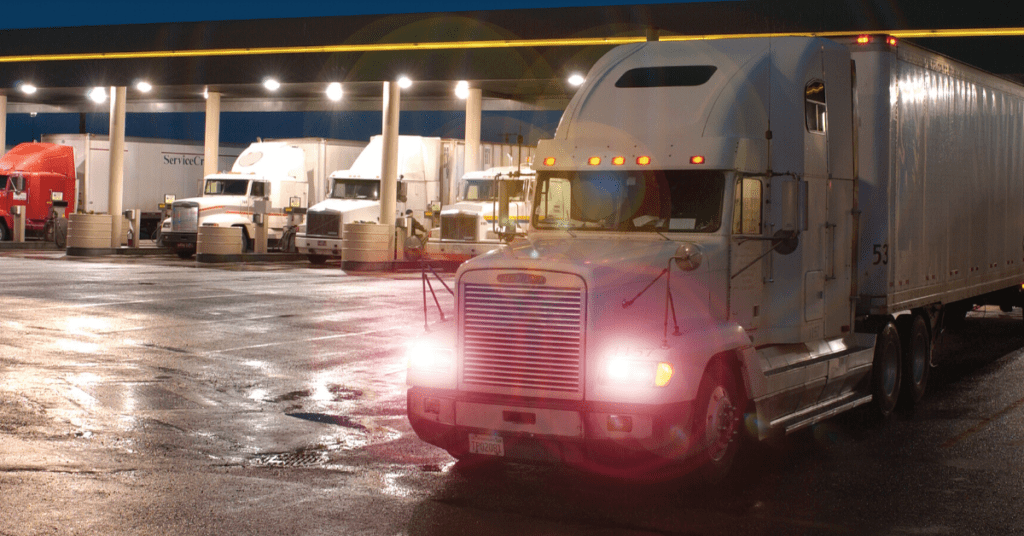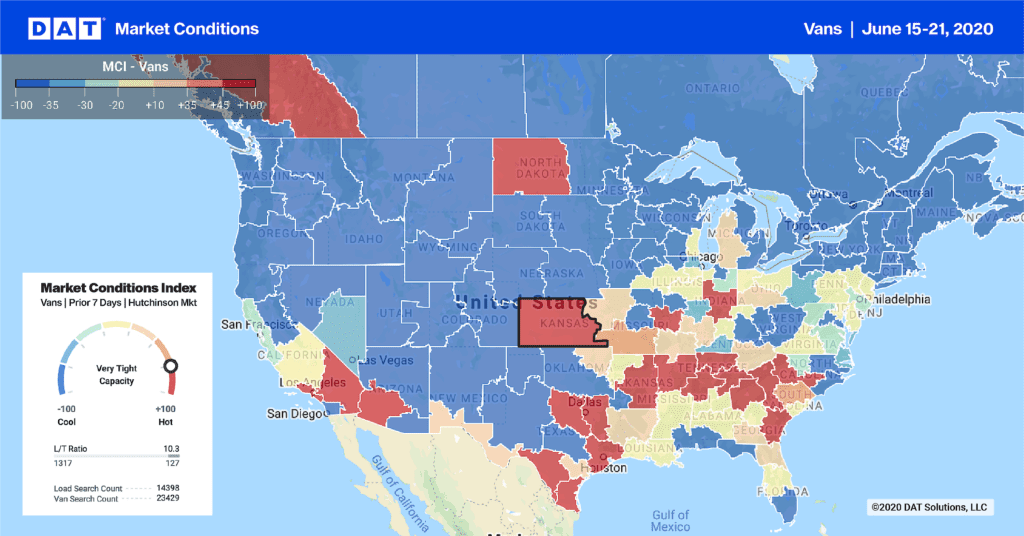The COVID-19 coronavirus pandemic has upended everything in our personal and professional lives. Most of us know at least one person who has tested positive for this new illness, or is in a high-risk group. Millions of Americans have lost their jobs, leaving them anxious and depressed. The stock market has whipsawed up and down, from record highs to record lows and back again, taking retirement accounts and other investments along for the unnerving roller-coaster ride.
Meanwhile, we are all doing the best we can to keep ourselves and others safe: staying home, trying to keep kids busy, checking on family, friends, and neighbors, keeping our distance from when we do venture out. It’s been a rough few weeks, and the situation could well get worse before it gets better.
Read the most recent COVID-19 special report from DAT Analytics.

Many businesses are closing, at least temporarily, but e-commerce is filling some of the gaps. Consumers continue to stock up on paper goods, hand sanitizer, cleaning products, and a long list of food staples, but that skyrocketing demand has strained supply chains almost to the breaking point.
Truck drivers deserve our help
Thankfully, a lot of jobs can be accomplished from home. Driving a truck is not one of them.
Let’s face it, truck drivers are the real heroes in our industry right now. We owe them a huge debt as they bring us whatever we need to keep ourselves clean, comfortable, and fed during this difficult time. And it’s not as if their work conditions have improved. In many cases, drivers have to wait long hours to enter the yard where they wait in line again to pick up or drop off their cargo. A lot of rest stops are closed along the route, and break rooms are often closed at shipper and consignee locations. These closures are being enforced to protect others against infection, but drivers are left with very few accommodations to maintain their own health.
We asked different trucking companies to share their experiences and tell how the crisis has changed their businesses as part of our regular #TruckingAMA series.
Rates may have peaked already
Another way to help drivers is to either improve load and unload processes and schedules, or to pay carriers enough so drivers can be compensated for all on-duty hours. The market as a whole has been favoring the latter solution: rates have risen sharply for van and reefer equipment in the past three weeks.
Van rates may soon begin to fall as fast as they rose, however, as declining load-to-truck ratios signal the end of the coronavirus-fueled spike in spot freight. Retail inventories are still being depleted and replenished at a rapid pace, but there’s a bit more slack in the supply chain due to slowdowns and closures in all sorts of industrial sectors that are considered “non-essential.”
Last week, spot rates were still rising in 71 of the top 100 high-volume van lanes. In all but 10 lane pairs, rates rose in both directions.
- Stockton to Seattle (and 3 more) rose 22¢ to $2.59 per mile, and Seattle to Stockton added 5¢ to $1.40. Other lanes out of Stockton also shot up last week.
- Phoenix to Los Angeles at $1.46 per mile was 10¢ higher last week, and L.A.to Phoenix gained 10¢ to $2.66
- Houston to Chicago was up 11¢ to $1.61 and Chicago to Houston hit $1.97
- Memphis to Indianapolis rose 15¢ to $2.28 and Indianapolis to Memphis paid $2.00 even.
- Atlanta to Philadelphia added 15¢ to $2.31 and Philly to Atlanta lost a penny to $1.65
- Dallas to Los Angeles got a 10¢ raise to $1.62 per mile, and L.A. to Dallas went up 6¢ to $1.54
Hardly any lanes had declining rates, and when they did, rates rose on many of the return trips. That could change this week, after the quarter ends and the impact of business closures and layoffs starts to sink in.
- Charlotte to Buffalo lost 9¢ to $2.29, and Buffalo to Charlotte fell 2¢ to $1.96. There wasn’t a lot of freight, anyway.
- Laredo to Dallas edged down 3¢ to $2.18 but Dallas to Laredo rose 2¢ to $1.28, for a net loss of one penny per mile, week over week.
- Denver to Dallas dropped 5¢ to $1.04 per mile, but Dallas to Denver added 13¢ to $2.32 per mile. At least 3 other Denver lanes lost traction last week.
- Philadelphia to Columbus paid $1.60, down 2¢, but Columbus to Philly shot up 10¢ to $2.92.
- Memphis to Chicago lost 4¢ to $2.02 per mile and Chicago to Memphis dropped to $1.93, although the roundtrip rate was still 30¢ higher than February’s average.


